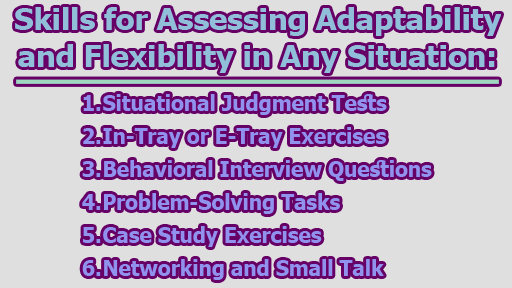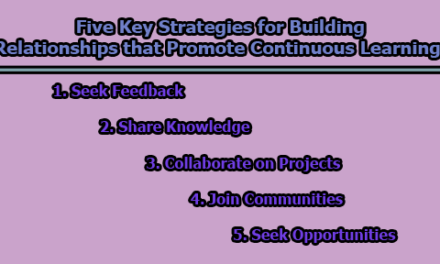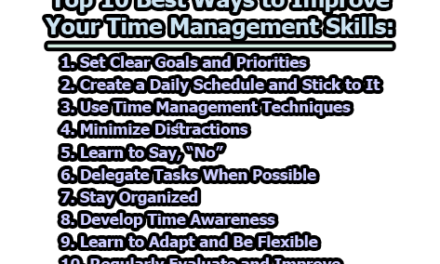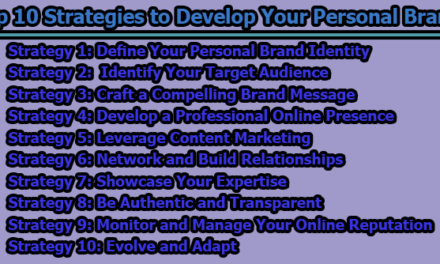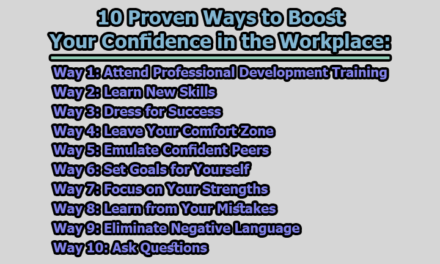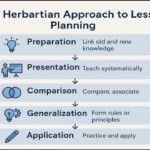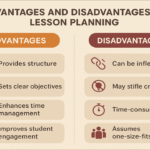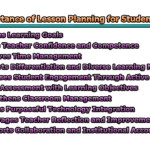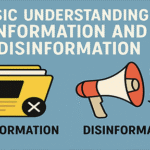Skills for Assessing Adaptability and Flexibility in Any Situation:
In today’s fast-paced and unpredictable world, adaptability and flexibility have become indispensable qualities in the workplace. Employers across industries seek candidates who can navigate through change, embrace challenges, and adjust their approaches to meet shifting demands. As hiring managers strive to identify individuals with these vital traits, they require a set of skills for assessing adaptability and flexibility during interviews and assessment days. This article explores the significance of adaptability and flexibility in the job market, examines the qualities employers look for in candidates, and delves into the skills for assessing adaptability and flexibility in any situation.
The Importance of Adaptability and Flexibility:
Adaptability and flexibility have risen in prominence as key attributes in the modern workforce due to the ever-changing nature of business landscapes. In a world characterized by rapid technological advancements, economic fluctuations, and unforeseen events, organizations require employees who can embrace change with a positive attitude. Graduates who demonstrate adaptability and flexibility are better equipped to thrive in dynamic work environments, where the ability to navigate uncertainty and adapt to evolving circumstances is critical.
Employers seek candidates who demonstrate a proactive approach to change, possess a “can do” attitude, and are eager to take on additional responsibilities beyond their core duties. The capacity to embrace new challenges and think creatively enables employees to contribute effectively to the organization’s growth and resilience. Moreover, adaptable and flexible graduates are more likely to handle unexpected setbacks and turn them into opportunities for personal and professional growth.
Qualities Employers Look For:
During the recruitment process, employers closely scrutinize candidates for specific qualities that indicate a strong adaptability and flexibility mindset. Some key indicators that catch the attention of recruiters include:
- Positive Response to Change: Candidates who exhibit a positive and optimistic attitude toward change are more likely to adapt to new situations effectively. A proactive response to challenges and a willingness to embrace change as an opportunity for growth demonstrate adaptability.
- Proactive Attitude and Approach: Employers value graduates who take initiative and are willing to step outside their comfort zones. Candidates who actively seek solutions and suggest innovative approaches to solving problems display flexibility in their thinking and actions.
- Willingness to Take Initiative: Adaptability often goes hand in hand with the willingness to take the initiative and assume leadership roles when needed. Employers appreciate candidates who demonstrate the ability to step up and lead during challenging times.
- Ability to Modify Plans: Flexibility is evident in candidates who can adjust their plans and strategies in response to new information or changing circumstances. Being able to pivot and adapt courses when needed showcases a candidate’s ability to think on their feet.
- Collaborative and Supportive: Employers value candidates who are team players and show a willingness to support colleagues. Being open to taking on additional roles outside of core duties to help the team achieve its goals is a strong indicator of adaptability.
- Openness to Relocation and Travel: In certain industries, like consulting or global companies, a willingness to relocate or travel for work is an essential aspect of adaptability.
Skills for Assessing Adaptability and Flexibility:
Recruiters employ various methods to assess adaptability and flexibility in candidates during the hiring process. These methods help them gain insights into a candidate’s problem-solving abilities, decision-making process, and approach to change. Some essential skills and techniques recruiters use include:
1. Situational Judgment Tests: Situational judgment tests present candidates with real-life scenarios commonly encountered in the workplace. Recruiters assess how candidates respond to these situations, gauging their ability to handle challenges and make informed decisions.
2. In-Tray or E-Tray Exercises: These exercises simulate work tasks with changing priorities, deadlines, and unexpected events. Candidates must prioritize and manage their workload effectively, showcasing their adaptability in dynamic work situations.
3. Behavioral Interview Questions: Behavioral questions inquire about past experiences of handling change, setbacks, or challenging situations. Candidates are asked to describe how they adapted to the situation, highlighting their flexibility.
4. Problem-Solving Tasks: Candidates may be presented with complex problems that require quick thinking and adaptability to evaluate their ability to handle unexpected challenges.
5. Case Study Exercises: Case studies assess candidates’ capacity to adjust strategies and plans based on new information, mirroring real-world decision-making.
6. Networking and Small Talk: During informal interactions, recruiters observe how candidates adapt their conversation topics and questions based on new information, reflecting their flexibility in communication.
Developing Adaptability and Flexibility:
As candidates, developing adaptability and flexibility can significantly enhance career prospects and overall employability. Here are some strategies to cultivate these essential qualities:
- Embrace Change: Seek opportunities outside of your comfort zone to become more adaptable to new experiences and challenges. Embrace change as an opportunity for growth rather than a threat.
- Continuous Learning: Stay updated with industry trends and advancements to be better prepared for changes in the professional landscape. Being well-informed allows you to respond more effectively to evolving circumstances.
- Develop Resilience: Building emotional intelligence and resilience helps you cope effectively with unexpected setbacks and changes. Resilient individuals are better equipped to bounce back from challenges and adapt to new situations.
- Take Initiative: Volunteer for new responsibilities and projects to demonstrate your proactive attitude towards growth and adaptability. Showing initiative highlights your willingness to take on new challenges and learn from experiences.
- Practice Problem-Solving: Engage in problem-solving exercises and scenarios to enhance your ability to think on your feet and modify plans when needed. Developing your problem-solving skills equips you to tackle unexpected challenges with confidence.
It is apparent that adaptability and flexibility are critical attributes sought by employers in candidates across all industries. These qualities enable professionals to thrive in dynamic environments and navigate through uncertainties effectively. By assessing adaptability and flexibility during the hiring process, recruiters can identify candidates who are best suited to meet the challenges of the modern workplace. For candidates, cultivating these qualities enhances career prospects and empowers them to contribute meaningfully to their organizations’ success. Embracing change, developing resilience, and honing problem-solving skills are vital steps toward becoming adaptable and flexible professionals ready to excel in any situation.
Frequently Asked Questions [FAQs]:
Why are adaptability and flexibility important qualities in candidates?
Adaptability and flexibility are essential qualities because they enable candidates to thrive in dynamic work environments where change is constant. Candidates who possess these traits can adjust their approaches, embrace new challenges, and navigate through uncertainties effectively, making them valuable assets to any organization.
How do employers assess adaptability and flexibility during the recruitment process?
Employers use various methods to evaluate adaptability and flexibility in candidates. These may include situational judgment tests, in-tray or e-tray exercises, behavioral interview questions, problem-solving tasks, case study exercises, and informal networking or small talk sessions.
What are some key indicators that employers look for in candidates to assess their adaptability?
Employers seek candidates who demonstrate a positive response to change, possess a proactive attitude and approach, show a willingness to take initiative, are open to modifying plans, collaborate well with others, and express openness to relocation or travel if required.
Can adaptability and flexibility be developed and improved?
Yes, adaptability and flexibility can be cultivated and enhanced over time. By embracing change, continuously learning, developing resilience, taking initiative, and practicing problem-solving skills, candidates can improve their adaptability and flexibility.
Are there specific industries or job roles where adaptability and flexibility are particularly valued?
Yes, adaptability and flexibility are highly prized in industries like consulting, finance, healthcare, technology, and startups, where the work environment can be dynamic and unpredictable. Job roles that involve client interactions, managerial responsibilities, and rapidly changing priorities also value these qualities.
How can candidates demonstrate adaptability during an interview?
Candidates can showcase adaptability during an interview by providing examples of times they successfully handled unexpected challenges, adjusted plans in response to new information, or took on additional responsibilities to support their team or organization.
What are the benefits of hiring candidates with strong adaptability and flexibility?
Hiring candidates with strong adaptability and flexibility benefits organizations in various ways. These individuals are more likely to handle unforeseen situations, come up with creative solutions, and contribute positively to a collaborative and agile work culture.
Can adaptability and flexibility be measured objectively?
While adaptability and flexibility are qualities that can be observed and assessed during the recruitment process, they may not be measured with absolute objectivity. Recruiters often use a combination of methods to gain insights into a candidate’s adaptability, problem-solving, and decision-making abilities.
How can candidates improve their adaptability during their studies or current employment?
Candidates can improve their adaptability during their studies or current employment by seeking opportunities outside their comfort zones, taking on leadership roles, embracing continuous learning, and being open to new challenges and experiences.
How do recruiters assess adaptability in group exercises or team-based assessments?
Recruiters observe how candidates adapt to new information, collaborate with team members, and adjust their strategies and approaches during group exercises. The ability to work effectively in a team and be receptive to new ideas indicates adaptability.
Are there any specific tips for candidates to excel in situational judgment tests?
Candidates can excel in situational judgment tests by carefully reading the scenarios, understanding the context, and considering the implications of each response. They should focus on choosing the most appropriate solution based on the situation presented.
Are there any potential pitfalls to avoid when demonstrating adaptability in an interview?
Candidates should avoid exaggerating their adaptability or using generic responses without providing concrete examples. Being honest about past experiences and demonstrating a willingness to learn and grow are more beneficial than claiming to be overly adaptable without evidence.

Assistant Teacher at Zinzira Pir Mohammad Pilot School and College

